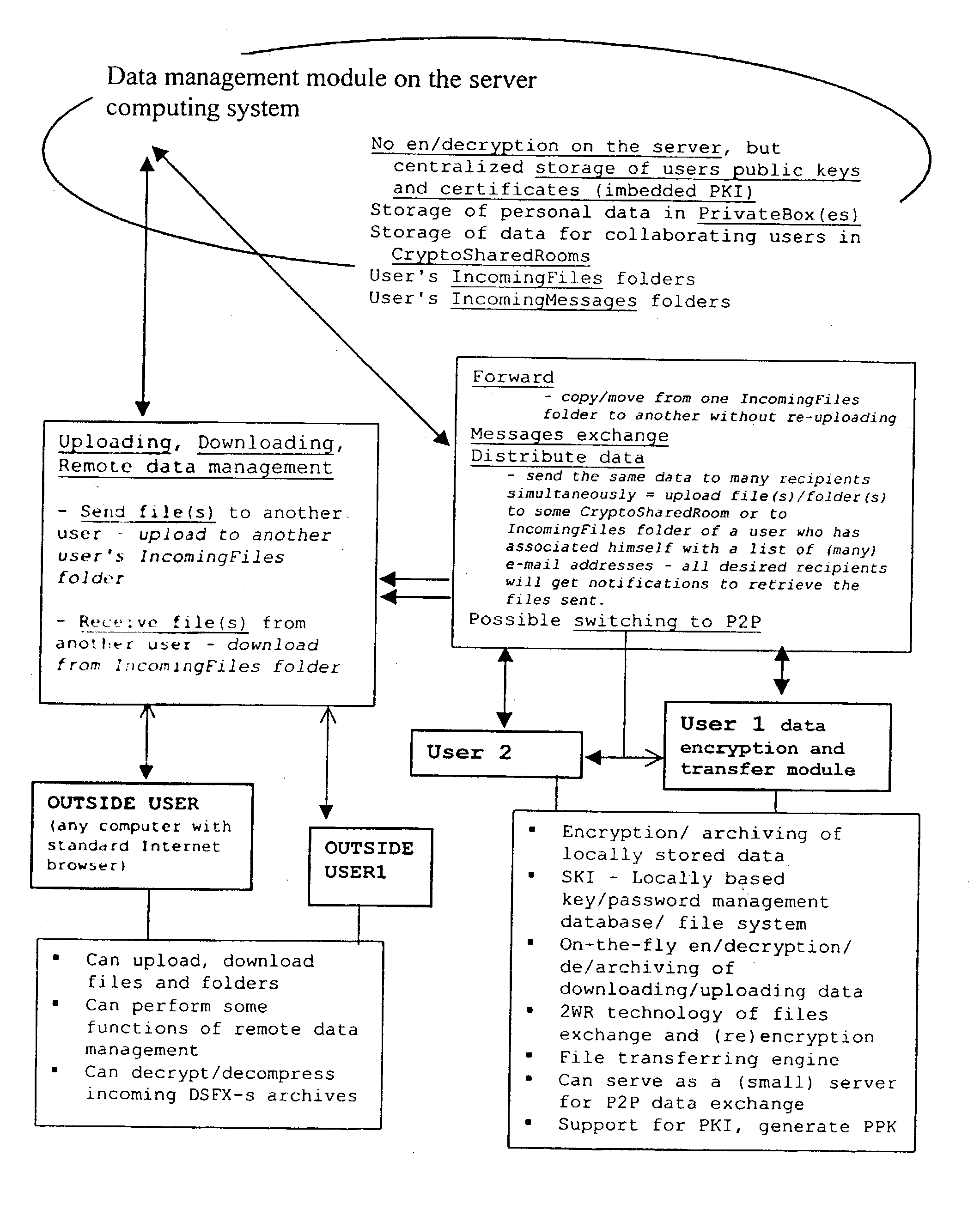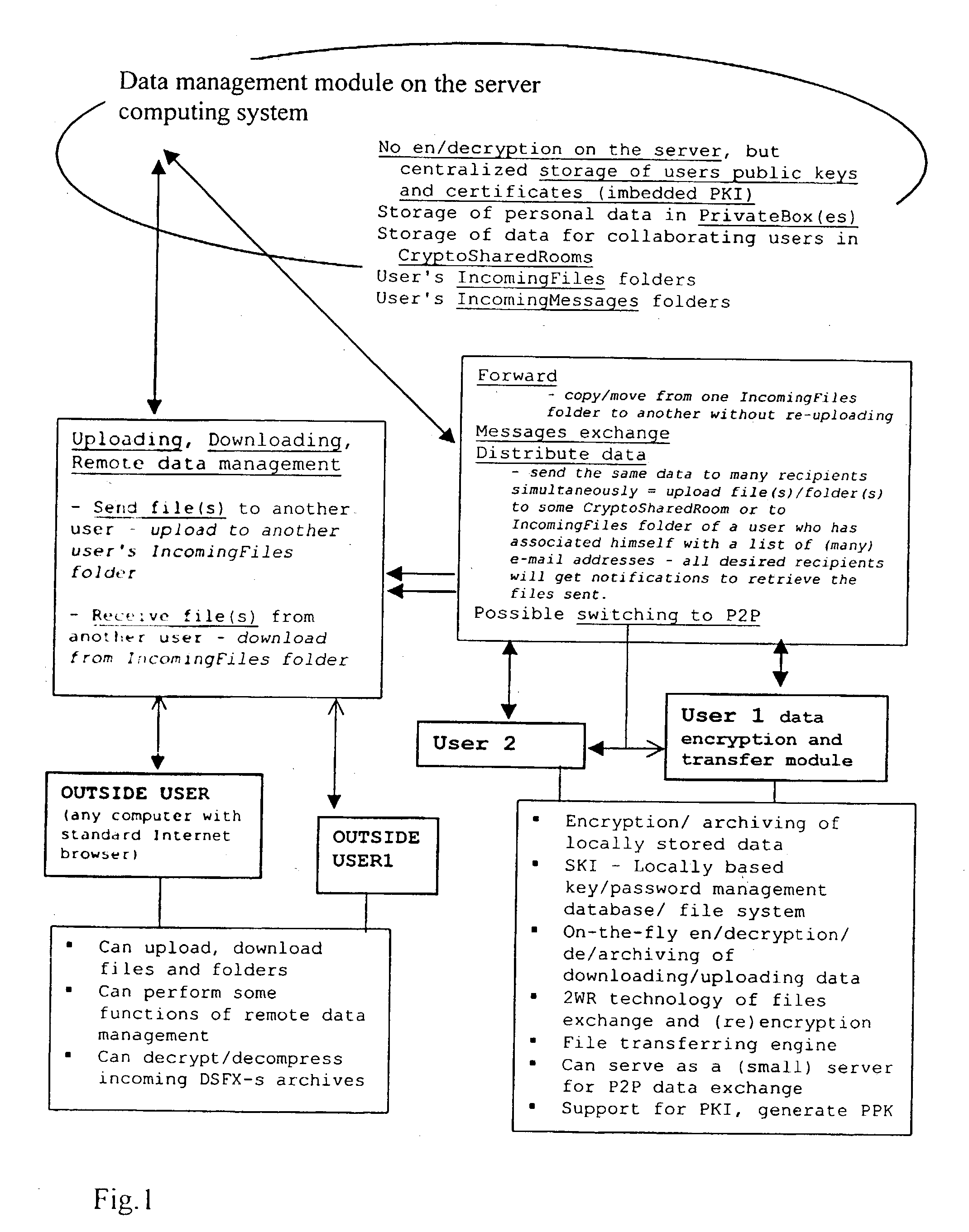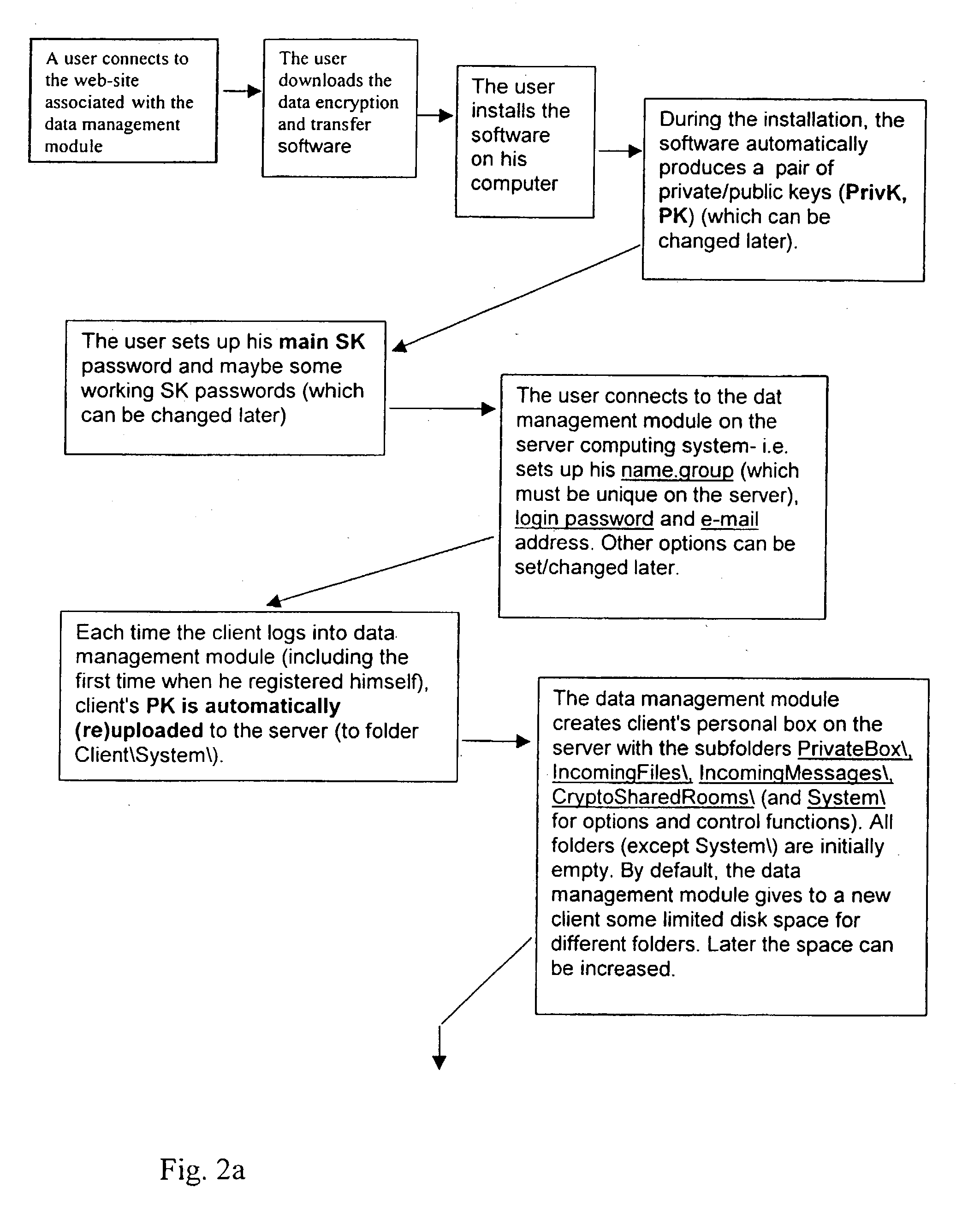Data transfer and management system
a data transfer and management system technology, applied in the field of data transfer and management system, can solve the problems of e-mail being quite unsuitable for a medium, requiring extra storage space on internet servers, and many prospective users do not trust the internet, so as to achieve easy download, easy and secure management, and convenient operation
- Summary
- Abstract
- Description
- Claims
- Application Information
AI Technical Summary
Benefits of technology
Problems solved by technology
Method used
Image
Examples
example 1
Downloading and Installing the Data Encryption and Transfer Module Software
[0105] Referring to FIG. 2, for the user, first contact with the system is the downloading and installing of the data encryption and transfer module (client) software.
[0106] A user downloads, installs and sets up the client part of the system (data encryption and transfer module) on his PC. During the setup, the data encryption and transfer module automatically produces a pair of private / public keys (PrivK, PK). The user can change his private / public keys whenever he wishes.
[0107] The private key is always encrypted by the main symmetric key (SK) of the data encryption and transfer module (for local protection), and this main SK is remembered by the user or written down and stored safely and can be changed by the user at any time. The main SK can be controlled by a Superuser who can read its log files and whose permission is required before changing the SK, as it can be revealed / restored by the Superuser, who...
example 2
Registering as a System User / Client
[0110] Referring to FIG. 2, the user of the data encryption and transfer module becomes a client of some / any system Server (the data management module). The data management module may be private and for specially qualified people only, for example employees of a particular organisation, in which case the decision to join the system is subject to the permission of that the data management module's Administrator, who will register the clients and give them their login names and login passwords, but not the passwords for data encryption. Alternatively, the data management module may be "public" i.e. for any user of the data encryption and transfer module software, without special eligibility requirements, and in this case the user connects to the data management module and registers himself, inputs / sets up a login name and login password of his own choosing. The owner of the data management module software determines these rules for his own system.
[01...
example 3
Working as a System User / Client
[0118] Each time a user connects / logs into the data management module, the data encryption and transfer module opens two windows for him on his PC screen. The left / Local (L) window represents his local computer (any folder on it), and the right / Remote (R) window is located to the source folder of the user on the system server (.backslash..backslash.the data management module.backslash.Mike.backslash.) with the structure of subfolders shown above.
[0119] The user can then perform the following actions, as he wishes, under his desktop control:
[0120] My Private box (Upload, Download, open sub-folders)
[0121] Download / view IncomingFiles
[0122] Download / view IncomingMessages
[0123] My CryptoSharedRooms
[0124] Navigate
[0125] Edit options / list of members
[0126] Delete / Rename / Create new
[0127] Send / distribute files / folders to client or outside users of the system
[0128] Send message to client
[0129] Navigate
[0130] Synchronize a SK with a user
[0131] Send files to a user...
PUM
 Login to View More
Login to View More Abstract
Description
Claims
Application Information
 Login to View More
Login to View More - R&D
- Intellectual Property
- Life Sciences
- Materials
- Tech Scout
- Unparalleled Data Quality
- Higher Quality Content
- 60% Fewer Hallucinations
Browse by: Latest US Patents, China's latest patents, Technical Efficacy Thesaurus, Application Domain, Technology Topic, Popular Technical Reports.
© 2025 PatSnap. All rights reserved.Legal|Privacy policy|Modern Slavery Act Transparency Statement|Sitemap|About US| Contact US: help@patsnap.com



